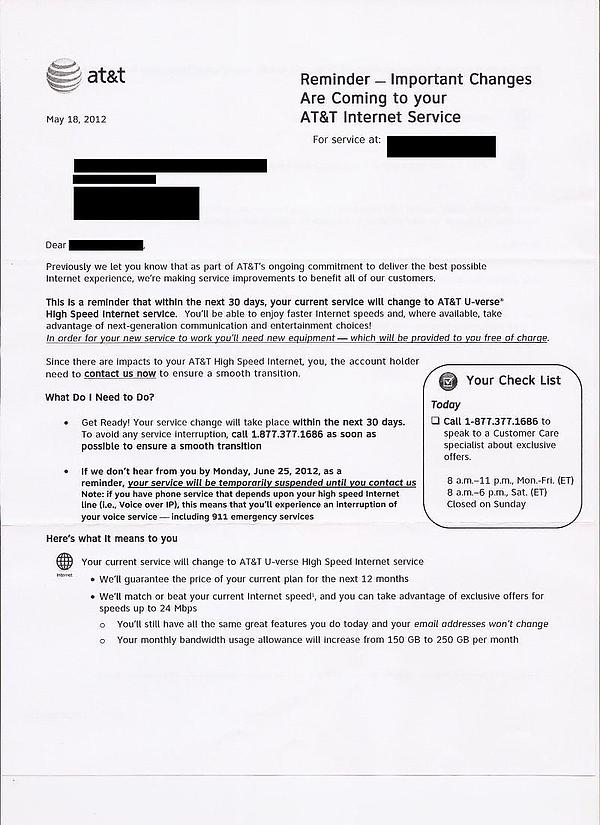 A Mill Valley, Calif. woman was overcharged by more than $3,000 after AT&T removed her company retiree discount and refused to reimburse her for its own billing mistake.
A Mill Valley, Calif. woman was overcharged by more than $3,000 after AT&T removed her company retiree discount and refused to reimburse her for its own billing mistake.
Tes Norlin and her husband travel the world and make a lot of overseas calls using their AT&T cell phone along the way. It wasn’t much of a surprise when the couple began receiving AT&T bills for more than $600, but when their travel was finished, AT&T wasn’t — the Norlin family continued to see surprisingly high bills.
 Tes is a victim of autobill complacency. The convenience of automatic bill payments has too often given people an excuse not to scrutinize their monthly bills, as long as the amount seems somewhat reasonable. It is only after an unexpectedly high bill arrives when customers finally begin to investigate.
Tes is a victim of autobill complacency. The convenience of automatic bill payments has too often given people an excuse not to scrutinize their monthly bills, as long as the amount seems somewhat reasonable. It is only after an unexpectedly high bill arrives when customers finally begin to investigate.
The Norlin family bundles every telecommunications service they have with AT&T – cell phones, broadband, and television service. For that loyalty, and because of Norlin’s former employment with AT&T, she qualified for a substantial discount — $263 a month. AT&T mistakenly removed that discount when it deleted her Social Security number from the account… 14 months earlier.
“And [that discount] amounted to over $3,000 which is a substantial amount of money,” Tes told San Francisco television station KGO. “$263.88 times the 14 months, basically. Then you can do the math.”
AT&T did its own math. Despite more than two dozen calls to AT&T customer service and executive customer relations, the company’s final offer was a courtesy credit amounting to three months of the missing discount AT&T admitted accidentally removing.
 The phone company says it’s the customer’s fault if they don’t analyze their AT&T bill and promptly call attention to billing errors.
The phone company says it’s the customer’s fault if they don’t analyze their AT&T bill and promptly call attention to billing errors.
“Rules are rules,” said AT&T.
Of course, AT&T wrote those rules and when KGO threatened to tell the story on the evening news, a full refund was quickly on the way.
“We provided an adjustment for the full amount, as requested, after discovering that the customer had been removed from the database of former employees eligible to receive this discount,” said AT&T in a change of heart.
Customers who don’t have the backing of Channel 7’s investigative reporter are much less likely to win that outcome so a word to the wise: even if your account is configured with autopay, always scrutinize your monthly bill for mistakes. Many cell phone companies are deleting employee discounts for customers that do not respond to employer verification requests. The re-verification procedure is detailed on the bill you may be ignoring.
[flv]http://www.phillipdampier.com/video/KGO San Francisco Woman struggles to get employee discount from ATT 7-9-14.flv[/flv]
KGO TV’s consumer reporter helps wrestle a substantial service credit from AT&T over a discount the company accidentally deleted from a customer’s account. (3:24)


 Subscribe
Subscribe









